Waste Travel

How do scientists predict the impact of regular space travel on the environment ?
Scientists predict the environmental impact of regular space travel by considering various factors such as greenhouse gas emissions, waste generation, and resource consumption. They use computer models, simulations, and experimental data to estimate potential effects on Earth's ecosystems. Greenhouse Gas Emissions: Launching rockets requires a significant amount of fuel, leading to high CO2 emissions. Powering spacecraft and supporting infrastructure also contributes to increased energy consumption and CO2 emissions. Waste Generation: Astronauts generate solid waste during their missions, which needs proper disposal to avoid pollution. Spent rocket stages can cause debris in orbit or harm wildlife if they fall back to Earth uncontrolled. Resource Consumption: Regular space travel requires a substantial amount of resources, including water, food, and materials for building spacecraft and infrastructure. This leads to increased demand and potential stress on freshwater sources, soil degradation, loss of biodiversity, and environmental damage due to material extraction. Mitigating Strategies: To address the environmental concerns associated with regular space travel, scientists propose strategies like developing efficient propulsion systems, using renewable energy sources, implementing waste reduction techniques, and promoting sustainable resource management practices.
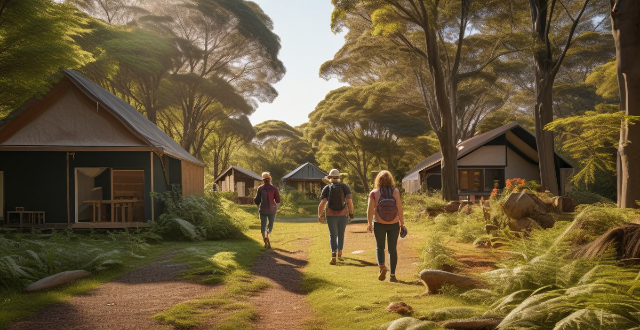
What role do tourists play in contributing to climate change through their travel activities ?
Tourism, while beneficial economically and culturally, contributes significantly to climate change due to carbon emissions from various travel activities. These include air travel, land travel, accommodation, activities, food and beverage choices, shopping habits, and packing and planning decisions. To mitigate this impact, tourists can offset emissions, choose sustainable travel options, stay in eco-friendly accommodations, participate in responsible tourism, reduce waste, support local produce, shop mindfully, plan ahead, advocate for change, and educate others on responsible travel practices.

How can governments promote waste reduction initiatives among citizens ?
Governments can promote waste reduction initiatives among citizens through education campaigns, incentives, regulations, community involvement, research and development, and public infrastructure investments. These strategies aim to raise awareness, encourage sustainable practices, enforce compliance, engage communities, fund innovative solutions, and establish efficient waste management systems.
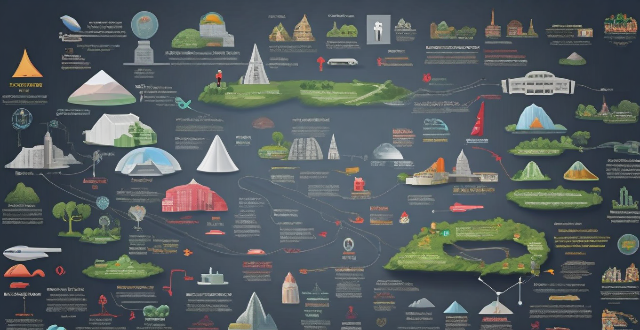
How much does travel insurance usually cost ?
The cost of travel insurance can vary greatly depending on factors such as destination, duration of trip, coverage level, and individual characteristics like age and health condition. To find the best policy for your needs, compare policies from different insurers, look for discounts, consider annual plans if you travel frequently, and review exclusions and limitations carefully.

What are some innovative technologies being used for waste reduction ?
Innovative technologies are being developed to address the critical issue of waste reduction, including anaerobic digestion, recycling and upcycling, composting, incineration with energy recovery, zero waste practices, IoT and smart waste management, circular economy models, and biodegradable and compostable materials. These solutions aim to minimize environmental impact and promote resource conservation.

What are the benefits of waste reduction for the environment ?
Reducing waste is crucial for preserving our planet's health and ensuring a sustainable future. Here are some key benefits of waste reduction for the environment: * Reduced Landfill Space * Conservation of Natural Resources * Decreased Pollution * Climate Change Mitigation * Preservation of Wildlife Habitats * Economic Benefits
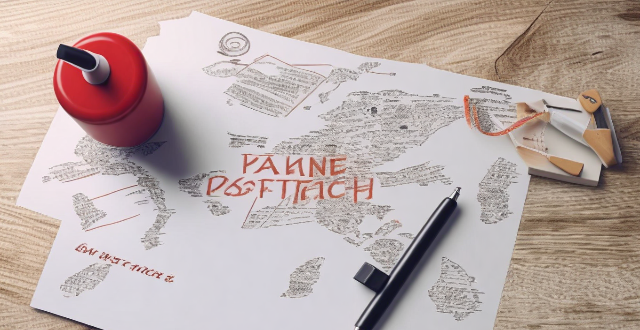
How can I make a positive impact through my travel experiences ?
How to make a positive impact through travel experiences.

Why is it important to recycle electronic waste ?
Recycling electronic waste is crucial for environmental sustainability, public health, and economic benefits. It conserves natural resources, reduces landfill space, prevents toxicity, creates jobs, saves costs, promotes green technology, reduces exposure to toxic substances, protects biodiversity, extends product lifespan, and raises awareness. Understanding the importance of e-waste recycling can lead to informed decisions that contribute to a circular economy and a healthier planet.

How does waste reduction contribute to a circular economy ?
The transition to a circular economy is significantly influenced by waste reduction, which encompasses various strategies like reusing products, recycling materials, and promoting resource efficiency. These practices help in conserving natural resources, reducing pollution, creating economic opportunities, and fostering sustainable consumer behavior. Governments and businesses play a crucial role in driving waste reduction through policy initiatives, technological innovations, and sustainable supply chain management. Community engagement and public awareness further support this shift towards a more sustainable economic model.

What are some innovative ways to recycle electronic waste ?
Innovative Ways to Recycle Electronic Waste Electronic waste, or e-waste, is a significant environmental concern that can be addressed through various innovative recycling methods. These include repurposing old devices, upcycling components, recycling plastics, energy recovery, designing for disassembly, regulation and education, and research and development. By adopting these strategies, we can reduce the amount of e-waste in landfills and lessen its environmental impact.

Can circular economy policies help reduce waste and pollution ?
Circular economy policies can significantly reduce waste and pollution by promoting reuse, recycling, and cleaner production methods. These policies incentivize businesses to design products that are easier to maintain and recycle, support sustainable business models like leasing and Product as a Service (PaaS), and encourage consumers to make environmentally friendly choices. Through such measures, the need for new raw materials decreases, energy consumption is reduced, and waste is diverted from landfills, all of which contribute to lower emissions and a cleaner environment.
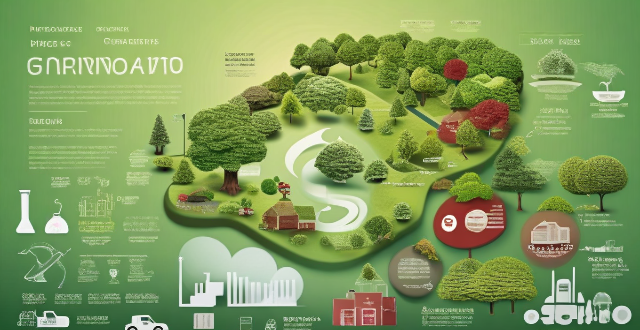
What is the impact of waste reduction on global climate change ?
This text discusses the importance of waste reduction in mitigating global climate change, highlighting how it can reduce greenhouse gas emissions, conserve natural resources, and protect ecosystems and biodiversity. It suggests ways to reduce waste such as reducing consumption, reusing items, recycling materials, composting organic waste, and supporting sustainable practices.
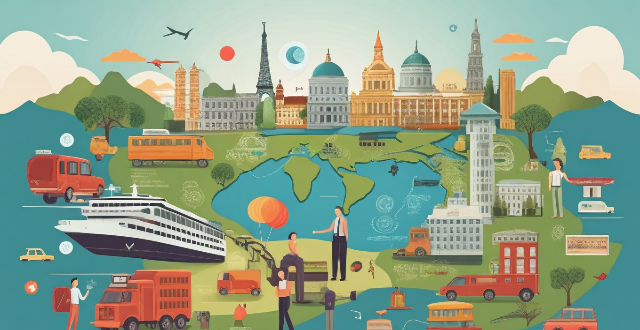
What are the benefits of participating in adventure travel activities ?
Adventure travel activities offer various benefits that positively impact physical, mental, and emotional well-being. These activities improve cardiovascular fitness, muscle strength, and weight management. They also reduce stress, boost self-confidence, and enhance creativity and problem-solving abilities. Adventure travel activities foster social interaction, personal growth, and improved mood and happiness.

What does a typical travel insurance cover ?
Travel insurance typically covers medical expenses, trip cancellation and interruption, baggage loss and delay, accidental death and dismemberment, and emergency assistance services. Optional extras may include coverage for sports and adventure activities, rental car damage, and travel delay. It's important to consider the specific needs of your trip when selecting a policy and to carefully read the details to understand coverage limits and exclusions.

What role does waste reduction play in sustainable development ?
The article discusses the importance of waste reduction in sustainable development. It highlights the environmental, economic, and social benefits of waste reduction, including conservation of natural resources, protection of ecosystems, climate change mitigation, cost savings, job creation, innovation and efficiency, public health, education and awareness, and community engagement. The article emphasizes that waste reduction is an essential component of sustainable development and encourages individuals, businesses, and governments to take action to reduce waste.

How does waste reduction affect the waste management industry ?
Waste reduction significantly impacts the waste management industry by affecting collection, transportation, processing, and disposal aspects. It leads to cost savings, optimized routes, smaller vehicles, lower energy consumption, extended landfill lifespan, increased efficiency, job losses, market opportunities, reduced greenhouse gas emissions, conservation of natural resources, improved air and water quality, increased public awareness, community engagement, and a healthier environment.
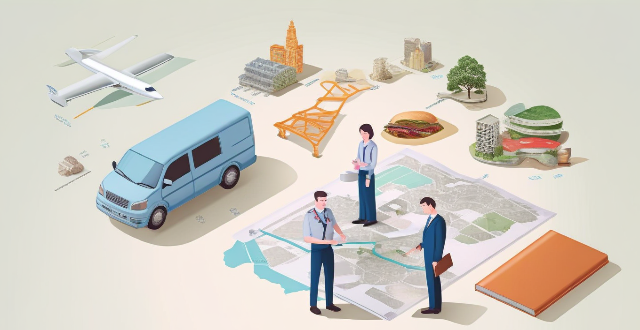
Is there an age limit for buying travel insurance ?
Is there an age limit for buying travel insurance? Most providers do not impose any restrictions based on age, but some policies may have specific requirements or limitations regarding age. When purchasing travel insurance, consider factors such as coverage options, pre-existing medical conditions, adventure sports coverage, cost, and reputation.

Can I buy travel insurance for someone else, like my parents or children ?
The article discusses the possibility of buying travel insurance for someone else, such as family members. It highlights the importance of understanding the specific requirements and restrictions associated with this process. The text provides a step-by-step guide on how to purchase travel insurance for someone else, emphasizing the need to choose the right policy that fits the insured person's needs and provides adequate coverage for their trip.
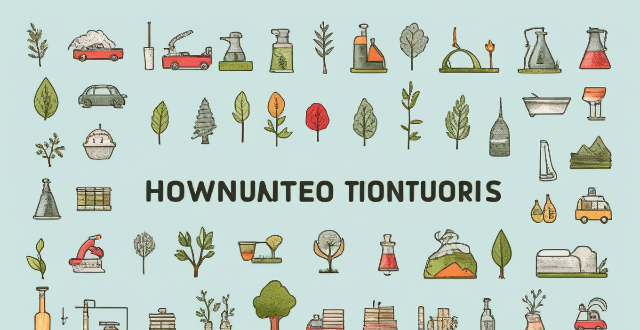
How do cultural factors influence waste reduction practices ?
The text provides an overview of how cultural factors influence waste reduction practices, highlighting the role of cultural attitudes, social norms, education, religious beliefs, economic conditions, and technological advancements in shaping waste management behaviors. It emphasizes that respect for resources, consumerism vs. conservatism, composting traditions, public awareness campaigns, community cleanliness standards, taboos around waste, environmental education, family values, role models, stewardship principles, reincarnation beliefs, interconnectedness philosophies, affordability of disposable products, recycling costs, government incentives, access to technology, digital awareness campaigns, and innovative product design are all aspects of culture that can significantly impact waste reduction efforts. By understanding these cultural dynamics, more effective strategies for sustainable living can be developed globally.
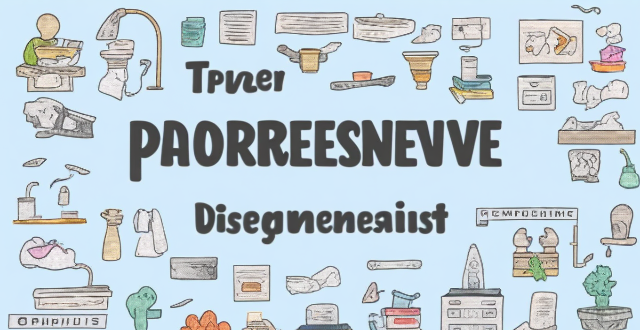
How do I properly dispose of electronic waste ?
The text provides a comprehensive guide to the proper disposal of electronic waste (e-waste), which is crucial for environmental preservation and public health. The guide explains what e-waste is, why it's a problem, and outlines steps for responsible e-waste management, including reducing consumption, reusing devices, recycling them through various methods, disposing of hazardous materials responsibly, and raising awareness about the issue. By following these steps—reduce, reuse, recycle, responsibly dispose, and raise awareness—individuals and communities can significantly mitigate the negative impacts of e-waste and make a difference.

How does a circular economy contribute to waste reduction and resource conservation ?
The circular economy model promotes waste reduction and resource conservation by advocating for the reuse and recycling of materials, reducing raw material extraction, extending product lifecycles, treating waste as a resource, encouraging the sharing economy and digital services, improving resource efficiency, promoting biodegradable and renewable resources, raising consumer awareness, and supporting regulatory policies. This approach challenges traditional linear economic models and offers a sustainable solution to address environmental issues related to waste and resource depletion.

How do clean production technologies help reduce waste and pollution ?
Clean production technologies are vital in reducing waste and pollution. They achieve this through energy efficiency, resource efficiency, improved waste management, pollution control, and a holistic approach to sustainability via life cycle assessment. By implementing these technologies, industries can operate in a more sustainable manner, minimizing their environmental impact.

Is it possible to achieve a zero-waste lifestyle ?
The text discusses the possibility of achieving a zero-waste lifestyle, which involves minimizing the amount of waste produced in daily life. It outlines three key steps: reduce, reuse, and recycle. Reducing waste can be done by buying only what is needed, choosing products with minimal packaging, and using reusable containers. Reusing items can involve donating or selling unwanted items, as well as repurposing them. Recycling involves separating recyclable materials from non-recyclable waste and sending them to facilities where they can be processed into new products. While achieving a completely zero-waste lifestyle may not be entirely feasible, making small changes in daily habits can significantly reduce waste production.

How can businesses implement waste reduction practices in their operations ?
This topic discusses the importance of waste reduction in businesses and provides strategies for implementing sustainable practices. It emphasizes the benefits of conducting a waste audit, adopting eco-friendly packaging, optimizing manufacturing processes, promoting reuse and repair, training employees in waste reduction, and partnering with green suppliers. The goal is to contribute to a more sustainable future while also benefiting financially through cost savings and efficiency gains.

Can I purchase travel insurance after booking my trip ?
The article discusses the possibility of purchasing travel insurance after booking a trip. It emphasizes that buying travel insurance early provides more comprehensive coverage, peace of mind, and potentially better prices. To purchase travel insurance after booking, one should research different policies, contact their travel agent or insurance company, provide relevant information, read the policy details carefully, and keep documentation safe. The article concludes that buying travel insurance early is generally recommended for optimal coverage and peace of mind during travels.
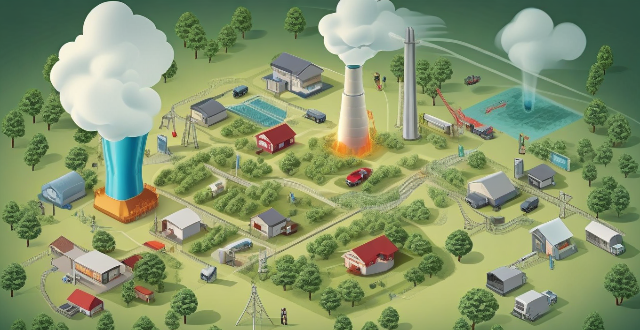
What is the relationship between waste reduction and energy conservation ?
The article discusses the relationship between waste reduction and energy conservation, highlighting their importance in promoting sustainable development. Waste reduction strategies such as recycling, composting, reusing materials, and reducing packaging conserve natural resources, reduce landfill space, and lower greenhouse gas emissions. Energy conservation measures like using energy-efficient appliances, improving insulation, and promoting renewable energy sources lead to lower energy costs, reduced greenhouse gas emissions, and promote sustainable development. The practices are interconnected, with recycling saving energy, composting reducing energy use, reducing packaging saving energy, energy-efficient appliances reducing waste, and promotion of renewable energy sources conserving energy and reducing waste.

How does electronic waste affect the environment if not recycled ?
Electronic waste, or e-waste, refers to discarded electronic devices such as computers, smartphones, and televisions. Improper disposal of these items can have severe consequences for the environment, including the release of toxic chemicals into soil, water, and air. These chemicals can cause health problems for both humans and wildlife. Non-recycled e-waste also occupies valuable landfill space and contributes to soil contamination, water pollution, and air pollution. Proper recycling of electronic waste is essential to protect the environment and human health, conserve natural resources, and minimize the impact on landfills.

How can I find a reliable electronic waste recycling center near me ?
Finding a reliable electronic waste recycling center is crucial for environmental protection, resource conservation, and energy savings. Here's a summary of the steps to find one: 1. Research online using search engines and review websites. 2. Check with local government agencies and solid waste management departments. 3. Ask friends, family, and community groups for recommendations. 4. Look for certifications and accreditations like e-Stewards and R2/RIOS. 5. Visit the recycling center to assess cleanliness and organization. To properly dispose of electronic waste, backup data, remove personal information, and follow manufacturer instructions.

How long does it take to train for a space travel mission ?
This article discusses the various aspects of training for a space travel mission, including physical, mental, and technical training. It highlights the duration of each type of training and emphasizes the importance of thorough preparation to ensure the safety and success of the mission.

How can I stay safe during adventure travel activities ?
Adventure travel activities can be exciting and thrilling, but they also come with certain risks. To ensure your safety during these activities, it's important to take necessary precautions and follow some basic guidelines. Here are some tips on how to stay safe during adventure travel activities: 1. Research and plan ahead before embarking on any adventure travel activity. Check the weather conditions, terrain, and potential hazards. 2. Choose reputable operators for your adventure travel activity. Look for operators that are licensed, insured, and adhere to safety standards. 3. Follow safety guidelines provided by the operator during the activity. Wear protective gear such as helmets, harnesses, or life jackets. 4. Make sure you are physically fit and healthy enough to participate in the adventure travel activity. If you have any pre-existing medical conditions or injuries, consult with a doctor beforehand. 5. Pack essential gear and supplies for the adventure travel activity, including appropriate clothing, footwear, sunscreen, insect repellent, and first aid kit. 6. Stay alert and attentive during the adventure travel activity. Keep an eye out for potential hazards such as uneven terrain, loose rocks, or changing weather conditions. 7. Use common sense and trust your instincts during the adventure travel activity. If something feels too risky or dangerous, don't hesitate to back out or seek assistance from the guides or other participants. By following these tips, you can minimize the risks associated with adventure travel activities and enjoy a safe and memorable experience.